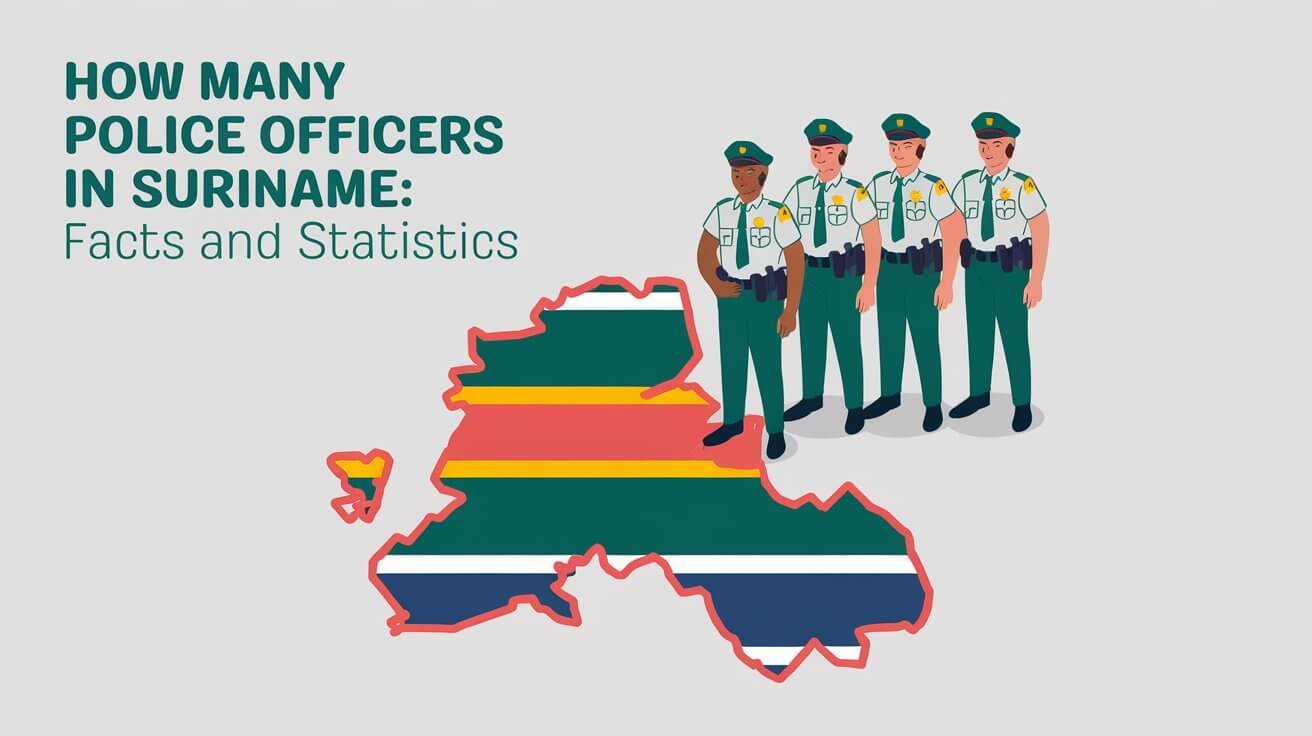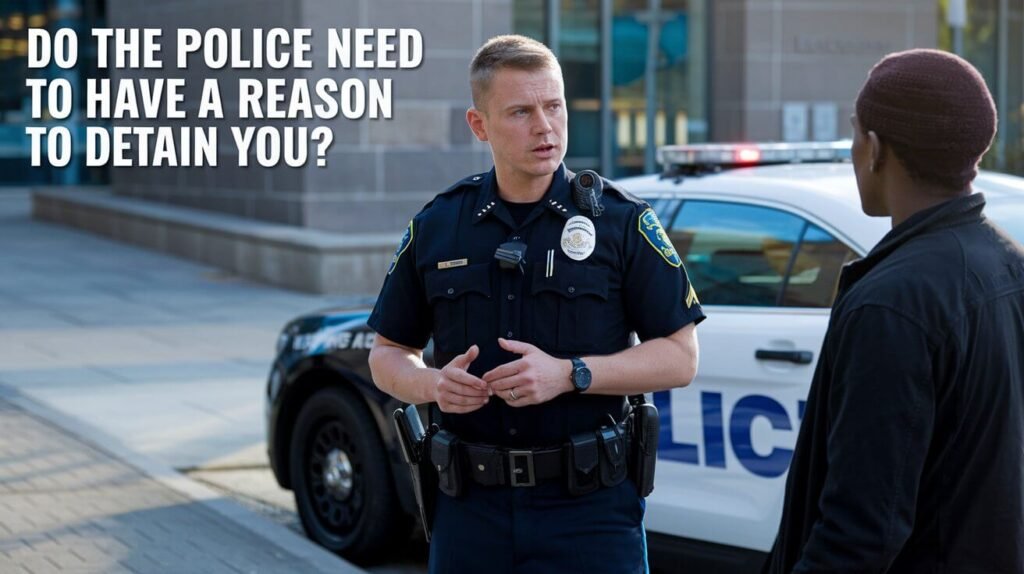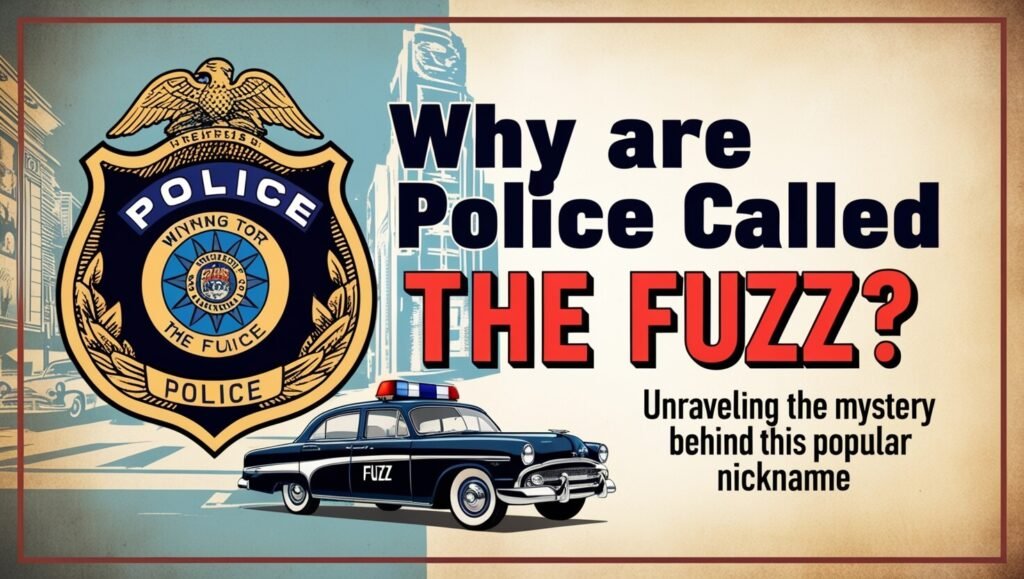Have you ever wondered why the police are sometimes referred to as "12"? It's not just a random number; there's a fascinating backstory behind it. If you're into police slang, codes, or just curious about law enforcement lingo, this term might pop up in conversations or even in pop culture. So, why are police called 12? Let's dive into the world of law enforcement jargon and uncover the truth behind this mysterious number.
Now, before we get into the nitty-gritty, let me tell you something cool. This term has been around for decades, and it's not just a modern invention. It's tied to the history of law enforcement and how communication evolved over time. Think about it—back in the day, officers didn't have smartphones or fancy gadgets. They relied on radios, and that's where the magic happens.
So, if you're ready to learn about the origins of this term, its significance, and how it's still relevant today, buckle up. We're about to take a deep dive into the world of police terminology, and trust me, it's gonna be an interesting ride. Let's get started, shall we?
Read also:Jayne Mansfield Car Accident A Tragic Tale That Shook Hollywood
Table of Contents
- The History Behind Why Police Are Called 12
- The Role of Radio Codes in Law Enforcement
- Modern Usage of the Term "12"
- Law Enforcement Communication Systems
- Common Police Slang and Jargon
- Police in Popular Culture
- The Impact of Police Terminology on Society
- Common Misconceptions About Police Codes
- Training Officers in Communication
- The Future of Police Communication
The History Behind Why Police Are Called 12
Alright, let's rewind to the early days of law enforcement communication. Back in the 1930s and 40s, radios were the primary tool for officers to communicate with each other and dispatch. These radios had limited channels, and each channel was assigned a number. Channel 12 was often designated for police use, and that's how the term "12" became synonymous with law enforcement.
Now, here's the kicker—this wasn't just a random choice. Channel 12 was chosen because it was less congested and allowed for clearer communication. Over time, the term stuck, and officers started referring to themselves as "12" in casual conversations. It became part of the culture, and even today, you'll hear it used in various contexts.
But wait, there's more! The term "12" isn't just limited to police officers. It's also used in other emergency services, like fire departments and paramedics. So, if you hear someone say "12's on the way," they might be referring to any emergency responder. Cool, right?
The Role of Radio Codes in Law Enforcement
Radio codes are an essential part of law enforcement communication. They allow officers to convey complex messages quickly and efficiently. Think of them as a secret language that only those in the know can understand. And guess what? The term "12" fits right into this system.
Here's a quick breakdown of how radio codes work:
- Each code has a specific meaning, and officers are trained to use them correctly.
- Codes like "10-4" (message received) and "10-20" (location) are widely recognized, but there are many more.
- The use of codes helps maintain professionalism and ensures that sensitive information isn't broadcasted openly.
So, when you hear someone say "12's on the scene," they're not just throwing around random numbers. They're using a system that's been refined over decades to ensure clear and effective communication.
Read also:Rena Sofer Latest Projects A Deep Dive Into Her Exciting Endeavors
Why Are Radio Codes Important?
Radio codes aren't just a bunch of numbers; they're a lifeline for officers in the field. They allow for quick decision-making and coordination during emergencies. For example, if an officer needs backup, they can simply say "12 needs assistance at 10-20," and the message is instantly understood by everyone involved.
Modern Usage of the Term "12"
Fast forward to today, and the term "12" is still alive and kicking. It's used in various contexts, from casual conversations to formal reports. But how has its usage evolved over time? Let's take a look.
In modern law enforcement, the term "12" is often used interchangeably with "police" or "law enforcement." For example, you might hear someone say, "The 12s are cracking down on speeding in this area." It's a shorthand way of referring to police officers without being too formal.
But it's not just limited to law enforcement. In pop culture, the term "12" has made its way into movies, TV shows, and even music. Think about it—how many times have you heard a character say, "The 12s are coming," in a suspenseful scene? It's become a staple of modern storytelling.
How Has Pop Culture Influenced the Term?
Pop culture has played a significant role in shaping the perception of the term "12." Movies like "Training Day" and TV shows like "COPS" have popularized the use of police slang, including the term "12." This has helped demystify law enforcement jargon and make it more accessible to the general public.
Law Enforcement Communication Systems
Now, let's talk about the bigger picture. How do law enforcement agencies ensure effective communication? It's not just about using radio codes; it's about having a robust system in place that supports officers in the field.
Here are some key components of modern law enforcement communication systems:
- Radio networks that cover large areas and allow for seamless communication.
- Dispatch centers that coordinate responses and provide real-time updates.
- Mobile data terminals that allow officers to access information on the go.
These systems are designed to ensure that officers have the information they need to make informed decisions. And guess what? The term "12" still plays a role in this system. It's a reminder of the history and tradition that underpins modern law enforcement communication.
Challenges in Law Enforcement Communication
Despite advancements in technology, law enforcement communication still faces challenges. Interoperability between different agencies, for example, can be a major hurdle. But agencies are working hard to overcome these challenges and improve communication systems.
Common Police Slang and Jargon
Police slang is a fascinating topic in its own right. It's a language that's evolved over time to meet the needs of officers in the field. And while the term "12" is one of the most well-known examples, there are many others worth exploring.
Here are some common police slang terms you might encounter:
- Code 3: Emergency response with lights and sirens.
- Code 4: Everything is okay; no further assistance is needed.
- 10-33: Officer needs assistance.
These terms might sound like gibberish to outsiders, but to officers, they're a crucial part of their daily communication. And they help create a sense of camaraderie and shared purpose among those in the field.
Why Do Officers Use Slang?
Officers use slang for a variety of reasons. It helps them communicate quickly and efficiently, especially in high-pressure situations. It also creates a sense of identity and belonging within the law enforcement community. And let's be honest—it's kind of cool to have your own secret language, right?
Police in Popular Culture
From classic cop shows to modern blockbusters, police have been a staple of popular culture for decades. And the term "12" has played a role in this portrayal. Whether it's a gritty crime drama or a lighthearted comedy, the use of police slang adds authenticity to the storytelling.
But it's not just about entertainment. Popular culture also shapes public perception of law enforcement. Shows like "Law & Order" and "NCIS" have helped demystify the work of police officers and given viewers a glimpse into their world. And while these portrayals aren't always accurate, they do highlight the importance of effective communication in law enforcement.
How Has Popular Culture Shaped Public Perception?
Popular culture has both positively and negatively influenced public perception of law enforcement. On one hand, it has helped humanize officers and highlight the challenges they face. On the other hand, it has sometimes perpetuated stereotypes and misconceptions about police work. But overall, it's a powerful tool for educating the public about the role of law enforcement in society.
The Impact of Police Terminology on Society
The use of terms like "12" has a significant impact on society. It shapes how we perceive law enforcement and influences our interactions with officers. But it also reflects the history and evolution of law enforcement communication.
Here are some ways police terminology impacts society:
- It creates a sense of familiarity and understanding between officers and the public.
- It helps demystify law enforcement jargon and make it more accessible to the general public.
- It highlights the importance of effective communication in maintaining public safety.
So, the next time you hear someone refer to police as "12," remember that it's more than just a number. It's a reflection of the rich history and tradition of law enforcement communication.
What Does the Future Hold?
As technology continues to evolve, so too will law enforcement communication. New tools and systems will emerge, and officers will adapt to meet the changing needs of their communities. But one thing is certain—the term "12" will remain a part of law enforcement culture for years to come.
Common Misconceptions About Police Codes
Let's address some common misconceptions about police codes and terminology. While they might seem mysterious to outsiders, they're actually quite logical once you understand their purpose. Here are a few myths and realities:
- Myth: Police codes are secret and only understood by officers.
- Reality: Many police codes are publicly available and can be learned by anyone interested in law enforcement.
- Myth: Police codes are outdated and no longer used.
- Reality: While some codes have fallen out of favor, many are still widely used in law enforcement today.
By dispelling these myths, we can gain a better understanding of the role that police codes play in modern law enforcement.
Why Are Misconceptions Harmful?
Misconceptions about police codes can lead to misunderstandings and mistrust between officers and the public. By educating ourselves about the realities of law enforcement communication, we can foster greater understanding and cooperation.
Training Officers in Communication
Effective communication is a key component of law enforcement training. Officers are taught to use radio codes and other forms of communication to ensure clear and concise messaging. This training is essential for maintaining public safety and ensuring that officers can respond quickly to emergencies.
Here are some key aspects of communication training for officers:
- Learning radio codes and other forms of police slang.
- Practicing clear and concise communication in high-pressure situations.
- Understanding the importance of teamwork and coordination in law enforcement.
By emphasizing the importance of communication, law enforcement agencies can ensure that officers are well-prepared to handle any situation they might encounter.
How Does Training Improve Communication?
Training improves communication by providing officers with the tools and skills they need to communicate effectively. It also reinforces the importance of professionalism and respect in all interactions with the public. And while the term "12" might seem like a small detail, it's part of a larger system that ensures officers can work together seamlessly.
The Future of Police Communication
As we look to the future, it's clear that law enforcement communication will continue to evolve. New technologies and systems will emerge, and officers will adapt to meet the changing needs of their communities. But one thing is certain—the term "12" will remain a part of law enforcement culture for years to come.
So, the next time you hear someone say "12's on the



